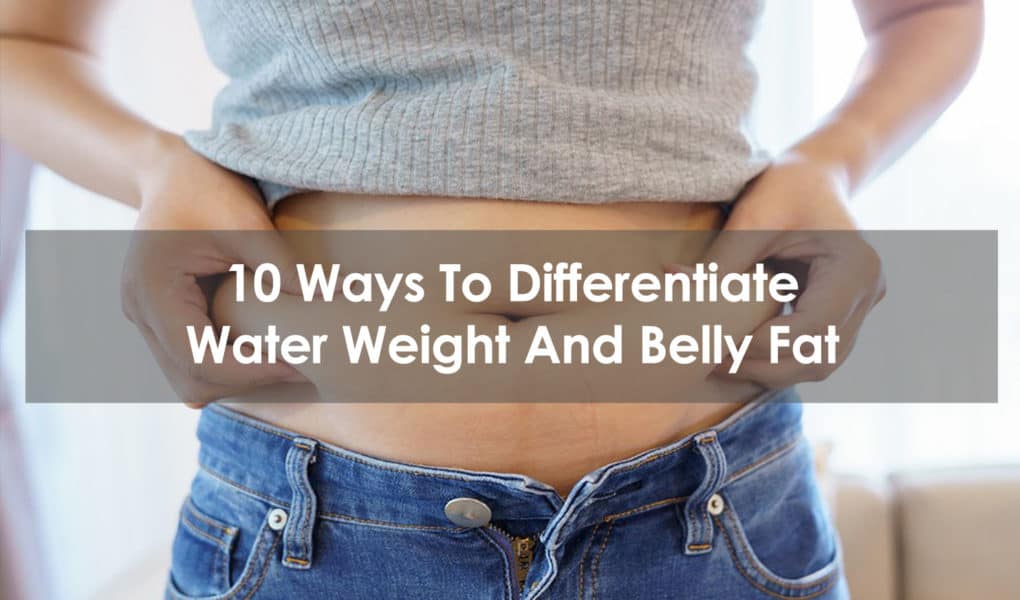A lot of people are obsessed with losing scale weight. The problem is that the bathroom scale cannot differentiate between fat loss and water weight. Of course, the only thing you want to lose from your body is fat. But how can you tell whether it’s fat or water that has caused the scale to drop? Here are 10 ways to differentiate between water weight and belly fat.
1. Fat Weight Results from Excess Calories
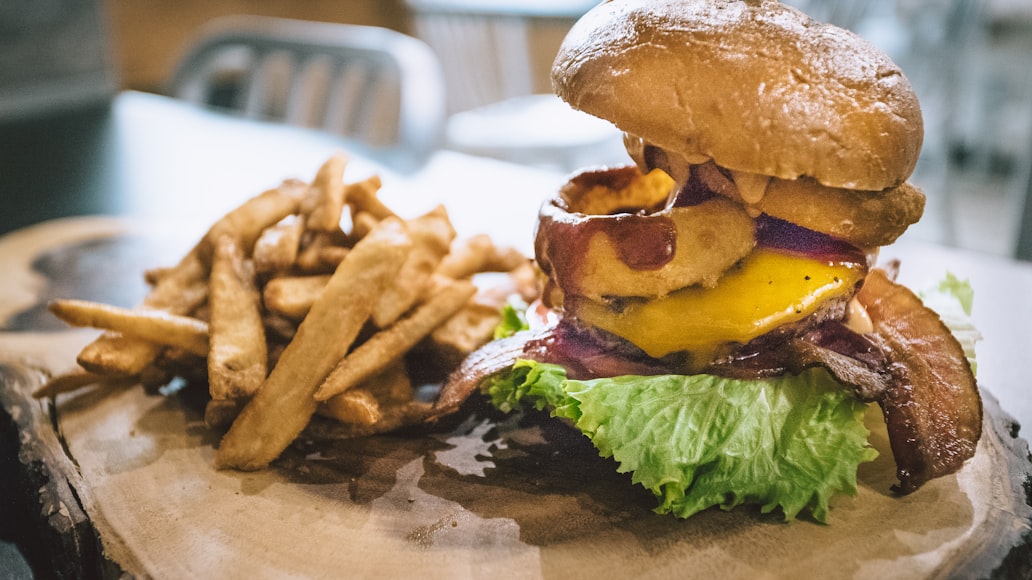
When you eat more calories than your daily calorie burn, you will end up putting on fat weight. So, if you know that you are maintaining a negative calorie balance and still gaining weight, then you can be sure that any extra pounds you are putting on are not fat. The other options are weight from muscle gain or water weight.
If you are working out to gain muscle, it’s possible that you may have gained lean muscle tissue. Or it could be water weight. Muscle weight gain will be pretty obvious as your muscles will be leaner and larger, whereas water weight gain bring on a somewhat bloated look to the muscles.
2. Water Weight Comes and Goes
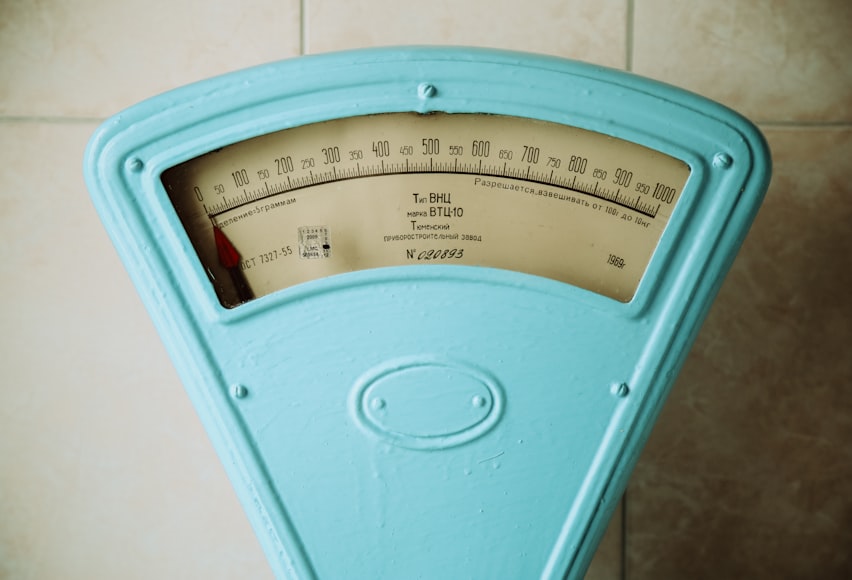
If you find yourself gaining weight quickly and then losing it just as fast, it is very likely that you have gained water weight. for example, if you step on a scale after you’ve eaten a heavy meal and find that your weight has gone up by several pounds, you don’t have to freak out. Within 24 hours the weight gain will very likely have gone and you’ll be back to your pre-meal weight. The weight you gained will have been water weight.
In contrast, fat gain is much harder to get rid of. Excess belly fat is stored energy so the only way to get rid of it is to put the body in a state where it has no choice but to call on that stored reserve to meet its energy demands. You can do this through a combination of reduced daily calories intake and exercise.
3. Fat Weight is Grabbable
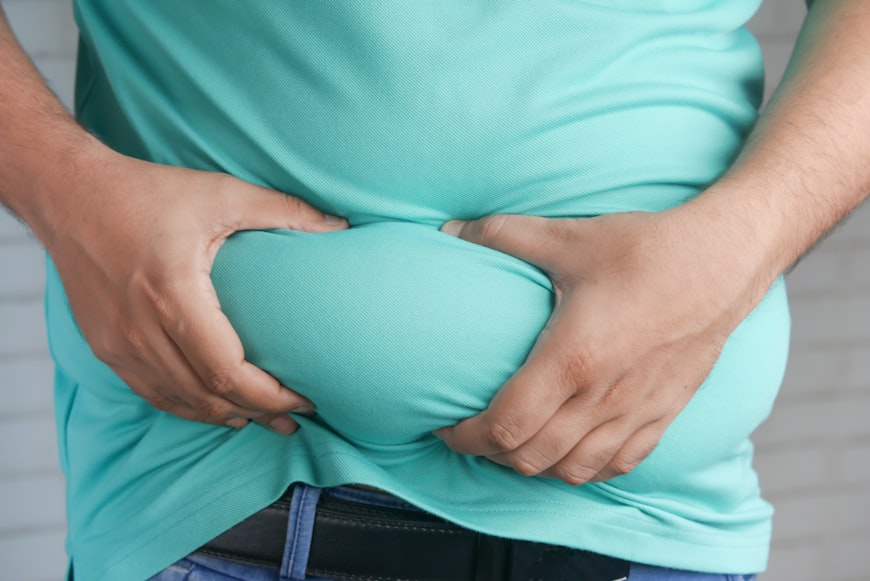
When you have an excess of body fat, especially excess belly fat, it can result in folds of fat under the skin that you can see and grab. That is not the case with water weight, which stretches your stomach but does not result in fat build-up under the skin.
4. Water Weight Gain is Fast: Fat Gain is Slow
if you are weighing yourself every day and seeing fluctuations always happening, it is a pretty sure sign that your weight gain is due to water weight. Water has weight, so when you are holding it in your body, your weight will naturally increase.
Just think of filling a balloon with water. A balloon that is filled with water will weigh a lot more than an empty balloon. Well, that balloon represents your stomach.
On the other hand, it takes time to add body fat to your frame. It is the result of the slow accumulation of excess calories.
5. Water Weight Doesn’t Affect Your Hunger Hormones
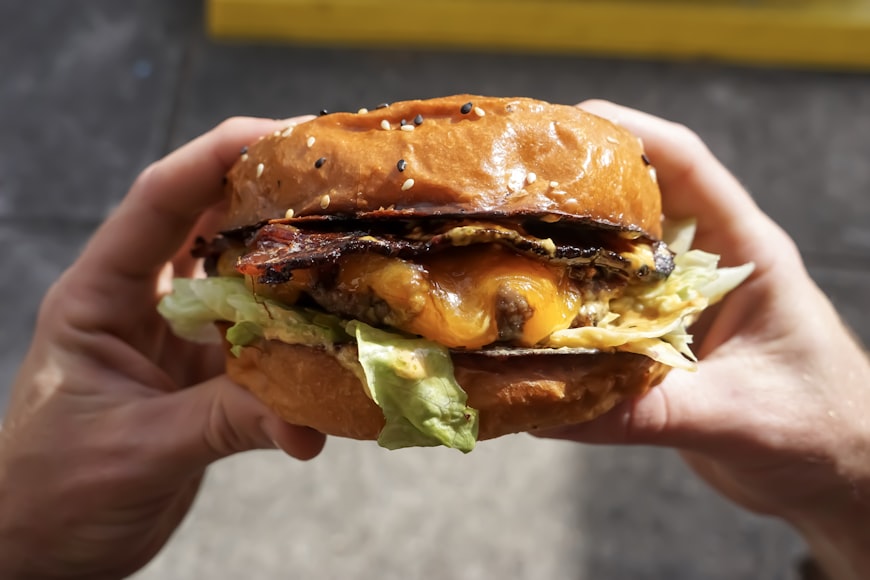
When you have too much water in your body, you may feel bloated and sluggish. But it will not make you want to eat more food. In contrast, there is a body of research to show that when you gain fat weight, your key hunger hormones – leptin and ghrelin – are affected. Ghrelin is known as the hunger hormone and overweight people tend to produce more of it. Women who are overweight will also produce more cortisol, which is known as the stress hormone. Stress, in turn, leads to overeating. Excess fat can also lead to blood sugar imbalances.
6. Different Food Choices Trigger Water and Fat Gain

Water retention has been linked to excess sodium intake. In contrast, fat weight gain is a result of too many overall calories in relation to energy needs. It has also been linked to food sources, primarily carb intake. With too many simple carbohydrates in the diet, especially those that are high in sugar content, you will gain fat. So carbohydrate restriction will help with fat loss, not water loss.
7. Track Your Body Fat Percentage

If you rely solely on the bathroom scale, you will never really know whether you are carrying body fat or extra water weight. The best way to know the difference is to measure your body fat percentage. You can do this by using body fat scales. A digital scale can differentiate between fat, water, and muscle weight. You can also use a pair of body fat calipers. As we mentioned earlier, your body cannot grab water weight. So, those skin folds that you are measuring are definitely going to be all fat.
8. Water Weight Leads to Puffiness

When you have water retention, your muscles will take on a puffy, bloated appearance. This will also be apparent in your hands and feet. This is not the case with fat weight gain.
You can do a simple test to see whether you are carrying water or fat weight. Just press your index finger into the fat on the back of your hand. If it leaves an impression, then you are looking at water weight. But, if it’s fat weight, the skin will bounce back to its original state with no mark left on the skin.
9. Water Weight is Not Affected By Muscle

In order to lose body fat, you should perform weight training exercises to build muscle. this will improve your metabolism so that you are burning more fat calories 24 hours a day. Water weight, however, is not affected by adding muscle mass to your body.
10. Water Weight Gain is Not Permanent
Your water weight will fluctuate all the time. It depends on how much food and water you are drinking and how much you are urinating. However, fat weight is on your body to stay or until you work hard to burn it off!
Conclusion
Now that you know how to distinguish between fat weight and water weight, make use of that knowledge to devise you plan to strip off excess body fat. As you follow through with your goal weight plan, don’t freak out f your weight goes up even though you’re doing everything right – it’s probably just temporary water weight gain.
Frequently Asked Questions
What is water weight gain?
Water weight gain is the extra body weight that results when your body retains water in the cells, joints, and tissues of the body. Chronic water retention that leads to excess weight can lead to swollen joints and belly bloat. This is a temporary condition.
